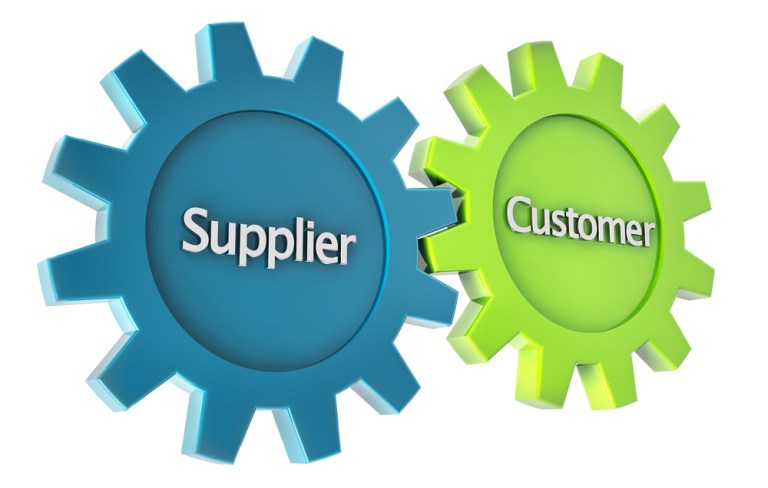The Divisive Nature Of Suppliers And AR Management

When it comes to accounts receivables tools, it’s not one-size-fits-all. In fact, BlueTarp president and CEO Scott Simpson recently told PYMNTS that there is a divide among suppliers in many ways – most notably, in their preferences for dealing with their corporate customers and how they get paid.
BlueTarp offers credit management services for suppliers by providing them with working capital, handling collections, facilitating invoice creation and tackling customer service. While some suppliers are relieved to be able to hand these operations off to a third-party firm, Simpson said that others prefer to handle customer interactions themselves.
That’s where the company’s new Powered solution comes in, providing suppliers with the cash flow and credit risk management they want, while taking a step back to allow suppliers to handle collections and other customer-facing operations solo.
BlueTarp Powered, Simpson said, is a reflection of this supplier divide.
“Our market research, and our qualitative experience, suggests that about half of all suppliers want to have no disruption, or perceived disruption, in their relationship with customers,” he said, adding that for these companies, a third-party firm handling customer service is one of those “perceived disruptions” that may be viewed as a loss of control over the buyer-supplier relationship.
“And the other half,” he added, “are thrilled to be out of that business. Collecting payments and delinquent payments can be time-consuming and frustrating, and if not handled well it will create problems.”
There are other factors that lead to such a divide among suppliers, too, Simpson said. Recent research conducted by the company found that these businesses land on one of two sides when it comes to getting paid on time by their corporate buyers.
[bctt tweet=”B2B delinquency rates have increased in each of the last four years”]
According to BlueTarp, delinquency rates have increased in each of the last four years, meaning companies are paying later. While there is a plethora of reasons as to why — large corporate buyers have the power to pay later, and they use that extra time to manage their working capital, etc. — Simpson said rising B2B payment delinquency rates can be attributed to supplier management choice.
“You’ll see some suppliers willing to hold the line and say, ‘our terms are our terms, and we expect to get paid on these terms and, if not, we expect to be compensated by interest charges.’ And you find others that are very much averse to something that might cost them business, and they therefore accept that they made the sale and that they’ll get paid when they get paid,” Simpson explained. “Part of it comes down to which type of suppliers you are and what your tolerance for confronting that situation is.”
This gap in AR management style is helping to steer the ship for B2B payments, Simpson said.
For instance, it’s this willingness to accept a corporate buyer’s payment terms that has largely forced small suppliers to accept paper checks when they do ultimately receive that payment.
“The customer is going to pay the way they’re used to paying,” the executive said, adding that the shift toward electronic payments is one that will take a few generations to make. This might be due to the fact that, just as small suppliers don’t always have the resources to demand faster payment from customers, they also don’t have the resources to adopt slick, digital payment capabilities.
Simpson said that the use of third-party financial services is one way suppliers can close that gap between allowing a corporation to dictate payment terms and processes, and gaining stronger control of the accounts receivable process. That, like the shift from paper to electronic payments, will surely take time, however.
“The analogy I might offer is that 30 years ago, everybody managed their payroll themselves; the concept of outsourcing it was scary, because getting people paid on time and in the appropriate way is necessary,” Simpson said. “But now, I don’t know a single company that doesn’t use somebody else for payroll.”
Allowing another company to handle accounts receivable will lead to anxiety for many suppliers, the executive admitted. But the investment in these solutions could be the difference between getting paid in 30 days, and getting paid in 90. And, eventually, it could mean the difference between getting paid via ACH or even via blockchain one day, and getting paid via paper check.
[bctt tweet=”There are better solutions where there is an opportunity for a supplier to get paid upfront”]
“The important thing is that there are better solutions where there is an opportunity for a supplier to get paid upfront, focus on what matters in their business, and have the elements of their business that aren’t strategic or critical to be handled by an outsourced entity,” Simpson said. “And I think the better the service, the more aware people are of those alternatives.”